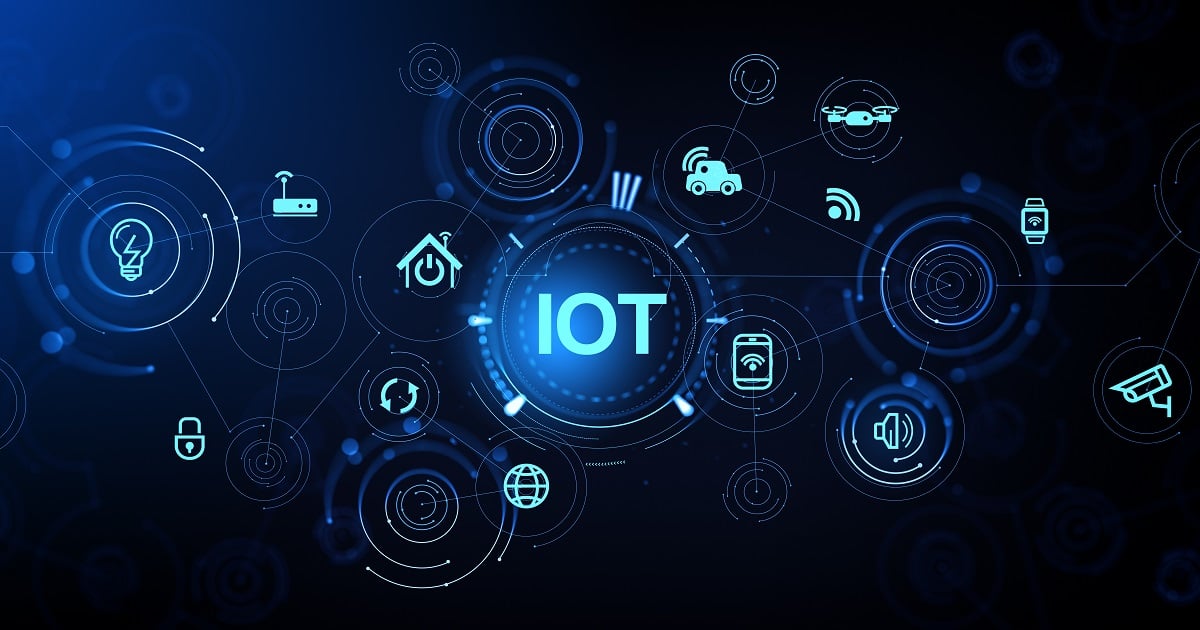
IoT identity and management revenues could reach $21.5 billion by 2022, according to a report from ABI Research, which says that IoT platform services, along with security, cryptography, digital certificate management, and data exchange will surge ahead even as multiple growth curves collide: more things, more cloud, more applications, more systems and above it all: more data.
In the report, analyst Dimitrios Pavlakis explains that through smarter gateways, cloud services, and growth in APIs, identity and management services are “steadily finding their way in a wider spectrum of IoT verticals,” with IoT vendors and service providers starting to invest more in encryption and device certificate management.
The report also suggests that open IoT standards and frameworks like OCF [Open Connectivity Foundation], OneM2m and DeviceHive are working towards vendor-agnostic OS/RTOS solutions that simplify a more scalable future as the world swims through oceans of data.
Today, Windmill Enterprise, a company specializing in blockchain and developing the open source Cognida Network and platform, announced they are contributing a backend database to the FreeIPA community, and by extension to RedHat, whose own Identity Management (IM) product (called IdM) is in large part powered by FreeIPA.
Enterprises have been using vendor specific IM solutions over the last decade, mainly however for general data and systems applications. They are now starting to see the need for less expensive and more flexible open approaches as they grapple with their digital transformation initiatives in the IoT and IIoT worlds.
In the growing Linux world, there are thousands of deployments of Red Hat supported projects (using FreeIPA) and co-founder and CEO of Windmill Enterprise, Michael Hathaway says the time is now for IoT and IIoT project and solution developers to including IM, including the adoption of blockchain with a backend database.
“One of the challenges enterprises have securing their computing environments is the increasing diversity of technologies used for identity, authentication, and authorization configuration across users, infrastructures, systems, services and applications,” said Jon Saperia, retired Enterprise Architect for Harvard University.“They are often spread across on-premise, cloud, SaaS and other environments. Integration of FreeIPA into the Cognida platform helps integrate critical technologies into a coherent system while at the same time increasing the security of the sensitive information through the use of blockchain technology.”
Windmill’s contributions to FreeIPA began in January of 2018. Windmill is actively contributing to the FreeIPA project with enhancements, bug fixes. In addition, Windmill is incorporating blockchain back end databases into FreeIPA services where identities and access control policies are stored, enabling multiple instances of FreeIPA to be deployed across the network that share a secure blockchain database. In addition, Cognida is developing web plugin and mobile device enhancements to authenticate users and devices with FreeIPA services and authorize access to distributed digital assets.
“We’re thrilled to be contributing to the FreeIPA project,” said Michael Hathaway, Co-Founder and CEO of Windmill Enterprise. “The FreeIPA integrates a full suite of mature enterprise identity management and access control services into a single open source distribution. he incorporation of Cognida’s security offload technology and integration of its blockchain agnostic capabilities into FreeIPA, enterprise administrators can use familiar and mature security tools to address challenges in an increasingly complex and distributed security landscape.”
Part of what a blockchain database can to do to enhance IM is in responding to increasingly strong regulations in different industry verticals across the IoT, including privacy regulations associated with everything from smart doorbells to smart cars.
The world’s volume of data will expand to 163 zettabytes by 2025 – a tenfold rise in the total – according to analyst firm IDC. The report also states that the trend is back towards enterprise data forming the bulk of that, away from consumers as the source even in the world of IoT where more and more devices are being managed over enterprise platforms, vs. by the consumers themselves.
With anything and everything IoT as a service, the report explains we are transitioning from a period in which information has been transformed from analog to digital to one in which digital information will increasingly be a critical part of systems required for everyday life-critical systems that use analytics, machine learning and the internet of things (IoT).
As far as ratios and trends go, consumer generated data is leveling out, while enterprise-owned and managed data will drive 60% of the world’s data by 2025, says the study sponsored by disk maker Seagate.
By 2025, the report says, “an average connected person anywhere in the world will interact with connected devices nearly 4,800 times per day.”
“When you do the math,” Hathaway said, “That’s one interaction every 18 seconds and that is going to keep driving data upwards of 5 billion zetabytes by 2025. It will be literally impossible to manage this amount of critical data – which is subject to more and more regulatory compliance – using old-world, centralized systems. That’s why enterprises and entire industries are decentralizing using blockchain, and why open technologies like Linux and Red Hat make increasing sense, particularly as blockchain becomes less of a novelty and more of a mature standard. That’s why we’re so excited to contribute Cognida’s backend database to the FreeIPA project.”
The IDC report also predicts that more than a quarter of data will be created in real time, and IoT data will constitute 95% of that.
“When you add real time to the data equation, you’re entering an entirely new zone,” Hathaway continued. “In order to analyze and act upon all this incredibly valuable data, enterprises are moving away from the traditional approaches and exploring better ways to control their data, even as it is shared with other enterprises and systems.”
Change the Economics, Change the Game
The economics for securing data generated by the IoT and IIoT has long been a problem for the industry. The economics around traditional enterprise IM solutions from companies like IBM, Microsoft, and specialists like Okta and Ping, is high.
Identity Management in Red Hat Enterprise Linux is free as a component of the platform and not a separately licensable products. Identity Management in Red Hat Enterprise Linux is a component of the platform and not a separately licensable product. Enterprises install Red Hat IdM on any Red Hat enterprise server and get support with a valid subscription.
With over a dozen vendor-locked solutions that build business around identity management services and integration with Active Directory requiring upfront and ongoing maintenance costs, enterprises exploring their options for IoT and IIoT data security are looking more closely at Linux – Red Hat – FreeIPA solutions.
Now they can look at those enhanced by a backend blockchain ready database.
The IM world will continue to grow and evolve, and Hathaway believes blockchain is the best answer to scalability and flexibility going forward. “Windmill’s team has been deploying mission critical, large Industrial IoT systems long before we even called it IoT,” Hathaway said. “We’ve grown up understanding the growth of data when connected things are contributing to the data pool, and when we began studying blockchain five years ago, it became evident this would be the future of controlling and securing enterprise data.”
Windmill Enterprise will is set to launch The Cognida Foundation, a US-based non-profit, later this year, so it is interesting to watch them engage with other open source communities early on.Its role will include oversight of ongoing community development of the Cognida Platform, as well as administration of the Cognida Network.
Foundation members will jointly oversee ongoing enhancements of the platform. This will involve membership voting to issue proposals for new projects and selection of developers.
Cognida tokens will be the method of compensation for ongoing development.
Edited by
Ken Briodagh





